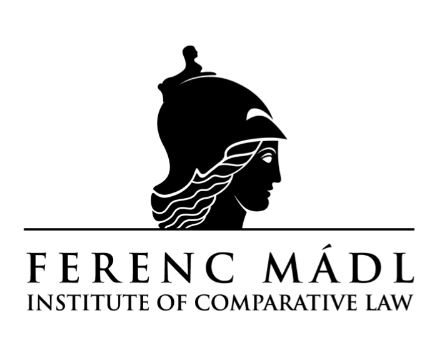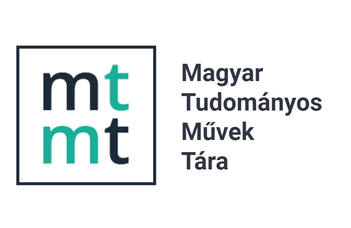Enforcing children’s right to self-determination in health care: theoretical and practical issues raised by the refusal of age-related compulsory vaccinations in Hungary
DOI:
https://doi.org/10.46941/2023.e1.1Keywords:
self determination, children rights, compulsory vaccinations, refusing a medical treatment, health authority’s decisionAbstract
nti-vaccination is a world-wide movement that has, unfortunately, found followers in Hungary as well. Anti-vaccination advocates attempt to postpone or outright avoid compulsory vaccinations for their children in various ways. On the one hand, these parents do not cooperate with family pediatricians, family nurses, and vaccinating doctors, and on the other hand, possession of medical documentation or certification without having actually had the vaccinations administered is an increasingly common phenomenon. One of the harmful consequences of the anti-vaccination movement is the increased incidence of epidemic outbreaks in developed countries, not just in developing ones.2 The question arises as to in what form and under what procedural framework a minor child’s right to self-determination in medical procedures should be enforced and whether the child’s parent, as the child’s legal representative, has the right –– and if so, within what legal framework –– to decide and even refuse, with regard to their child, a medical treatment or invasive intervention that is compulsory or recommended by a doctor. The case of refusal of age-related compulsory vaccinations is also of particular importance. The paper deals in more detail with the legal background of the arguments and counter-arguments and the practical problems involved.
References
Artige, L. & Nicolini, R. (2006) Evidence on the Determ inants of Foreign Direct Investment. The Case of Three European Regions. Crepp Working Papers; http://www2.ulg.ac.be/crepp/papers/crepp-wp200607.pdf.
Barzó, T. (2019) ‘Kártalanítás az egészségügyben’ (Compensation in healthcare) in Barzó,T. and Papp, T. (eds.) Civilisztika II. (Civilistics II.) Budapest: Dialóg Campus Kiadó, pp. 393-413.
Broner, F., Didier, T., Erce, A. & Schmukler, S. L. (2013) 'Gross Capital Flows: Dynamics and Crises', Journal of Monetary Economics, 60(1), pp. 113–133; https://doi.org/10.1016/j.jmoneco.2012.12.004.
Daugeliene R. (2011) ES ekonomine integracija: priezastys, raida, perspektyvos. KTU: Technologija.
Dósa, Á. (2012) Összehasonlító egészségügyi jog. Orvosetikai kérdések jogi szemmel. (Comparative health law. Issues of medical ethics from a legal perspective.), Budapest: Complex Kiadó.
Dósa, Á., Hanti, P. and Kovácsy, Zs. Nagykommentár az egészségügyi törvényhez. (Great Commentary on Act CLIV of 1997 on Health, Explanation.), Wolters Kluwer Jogtár.
Gyöngyösi, Z. (2002) Az élet és test feletti rendelkezések joga. (The right to control life and body.) Budapest: HVGORAC Lap és Könyvkiadó Kft.
Hidvéginé Adorján, L. and Simkó-Sári, Á. (2017) Az egészségügyben dolgozók jogvédelme. (The legal protection of health workers.), Budapest: Medicina Kiadó.
Hidvéginé Adorján, L., Simkó-Sári, Á. and Ohár, A. (2021) A betegek önrendelkezési joga. (Patients’ right to self-determination.), Budapest: Medicina Kiadó.
Láncos, P. L. (2015) ‘A magzatok és embriók kereskedelmi és ipari célú felhasználásának morális és jogi kérdései’ (The moral and legal issues surrounding the commercial and industrial use of embryos and foetuses’), Pro Futuro, 2015(2), pp. 55-69; https://doi.org/10.26521/Profuturo/2015/2/5385.
Lápossy, A. (2022) ‘Ki nevel a végén? - A szülő neveléshez való jogának alapjogi tartalmáról és határairól’ (Who educates in the end? – On the content and limits of parents’ fundamental right to education.), Családi Jog, 2022(3), pp. 1-7.
Mohai, Zs. and Pénzes, M. (2018) ‘A kötelező védőoltásokkal szembeni ellenállás megjelenése a népegészségügyi hatósági ügyekben’ (Mandatory vacccination refusal in the official cases of the public health authority) Egészségtudomány, 2018(3-4), pp. 82-100; https://doi.org/10.29179/EgTud.2018.3-4/82-100.
O’Neil, J. M., & Egan, J. (1992) ‘Men’s and women’s gender role journeys: Metaphor for healing, transition, and transformation’ in B. R. Wainrib (ed.) Gender issues across the life cycle. New York: Springer, pp. 107-123.
Szendrői, A. (2020) ‘Egy szúrás az egész?! Az életkorhoz kötött kötelező védőoltásokat övező személyiségi jogi kollíziók‘ (Is it just a sting?! Conflicts of personality law surrounding age-related compulsory vaccinations.), Miskolci Jogi Szemle, 2020(2), pp. 186-199.
European Commission (2013) TARIC Consultation methodology. Available at: http://ec.europa.eu/taxation_customs/dds2/taric/taric_consultation.jsp?Lang=en&Taric=&EndPub=&MeasText=&Area=RU&Regulation=&LangDescr=&MeasType=&SimDate=20131025&StartPub=&OrderNum=&GoodsText=&Level=&Expand=true (Accessed: 14 December 2013).





